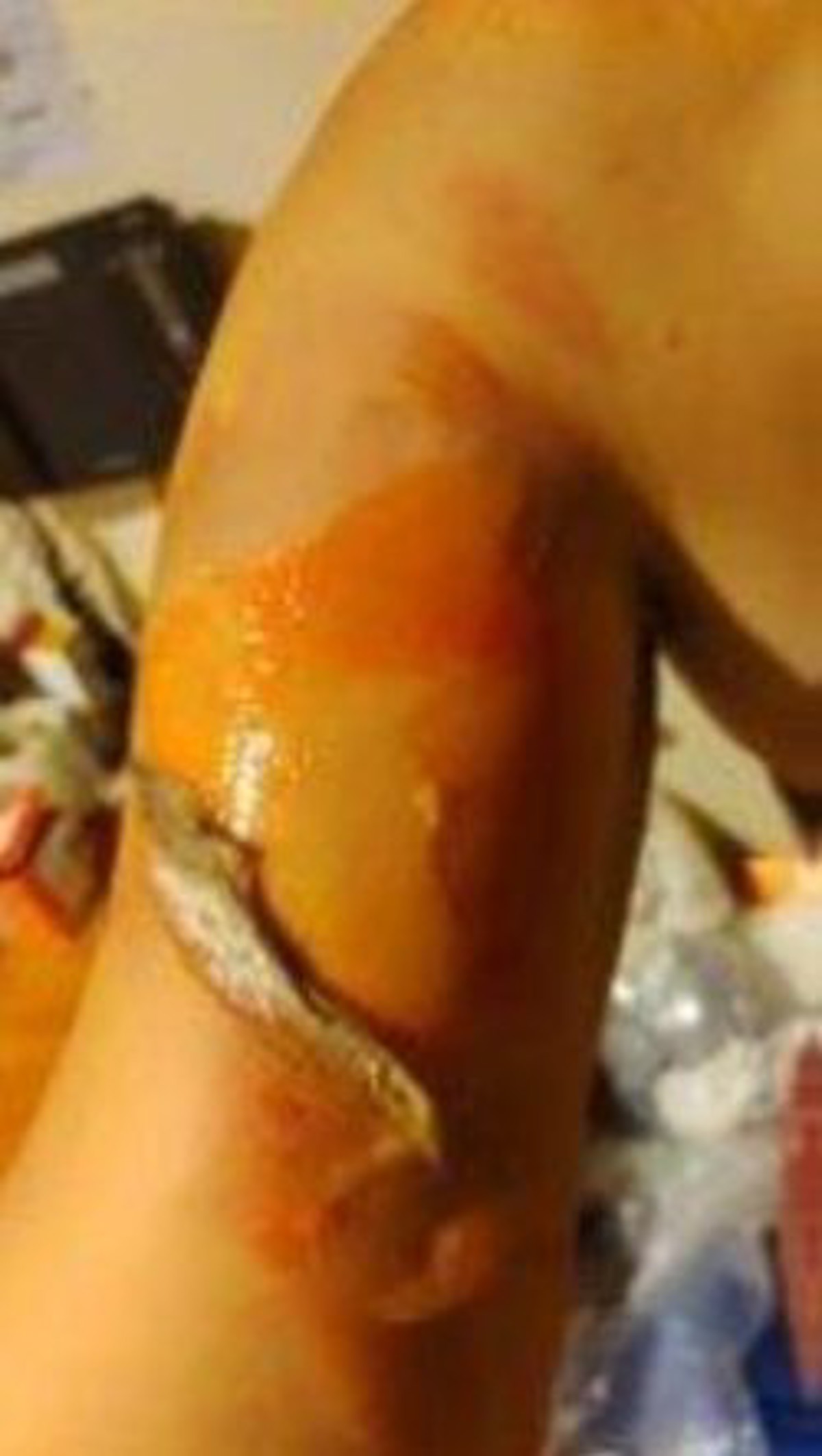Cook’s arm scalded while removing food from oven
- Safety Flash
- Published on 3 October 2022
- Generated on 10 July 2025
- IMCA SF 22/22
- 2 minute read
Jump to:
Whilst removing a tray, scalding hot water (condensed steam) on the surface of the lid dripped onto cook’s arm.
What happened?
At a meal time the chief cook opened the upper part of a combined oven to remove a tray of rice that was being kept heated. The tray was at head height for the injured person. Whilst removing the tray, scalding hot water (condensed steam) on the surface of the lid dripped onto the cook’s arm causing a scald injury. The accident was a medical treatment case and the cook had to be sent ashore for treatment.
What went wrong?
The lower oven (which would have been safer) was not working and the upper oven was used instead for hot food storage. As the cook was shorter than the height of the oven it was not possible for him to see the condensed steam on the surface of the lid when he removed the tray.

What went wrong (Cont.)
Reaching upwards for a hazardous or heavy object at eye-line is something that ought to occur to you as being potentially tricky. In this case the cook could not see the top of the tray – and scalding water ran off the tray onto his arm. In different circumstances, this could have been dust or debris sliding off the object into your eyes and your face. You might find such an object is too heavy to control with your arms raised. Stop and think!
Lessons learned
Our member:
- Fixed the lower oven and amended the Planned Maintenance schedule.
- Reviewed the risk assessment and procedure for this task.
- Further encouraged crew to report that equipment had failed.
- Replaced the lids with PVC plastic (film stretch).
Related Safety Flashes
-
IMCA SF 22/20
24 July 2020
-
-
IMCA SF 08/15
2 June 2015
IMCA Safety Flashes summarise key safety matters and incidents, allowing lessons to be more easily learnt for the benefit of the entire offshore industry.
The effectiveness of the IMCA Safety Flash system depends on the industry sharing information and so avoiding repeat incidents. Incidents are classified according to IOGP's Life Saving Rules.
All information is anonymised or sanitised, as appropriate, and warnings for graphic content included where possible.
IMCA makes every effort to ensure both the accuracy and reliability of the information shared, but is not be liable for any guidance and/or recommendation and/or statement herein contained.
The information contained in this document does not fulfil or replace any individual's or Member's legal, regulatory or other duties or obligations in respect of their operations. Individuals and Members remain solely responsible for the safe, lawful and proper conduct of their operations.
Share your safety incidents with IMCA online. Sign-up to receive Safety Flashes straight to your email.

